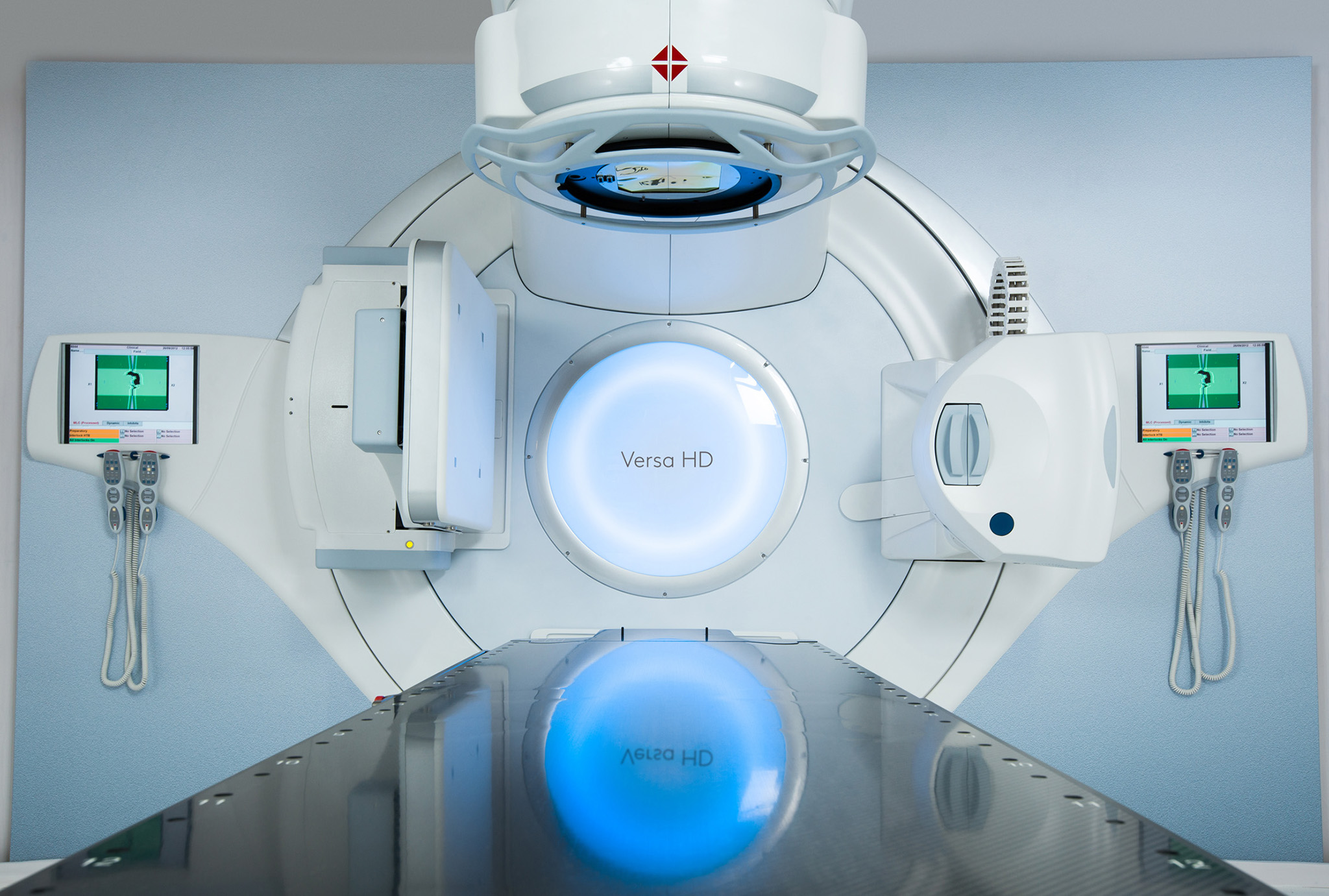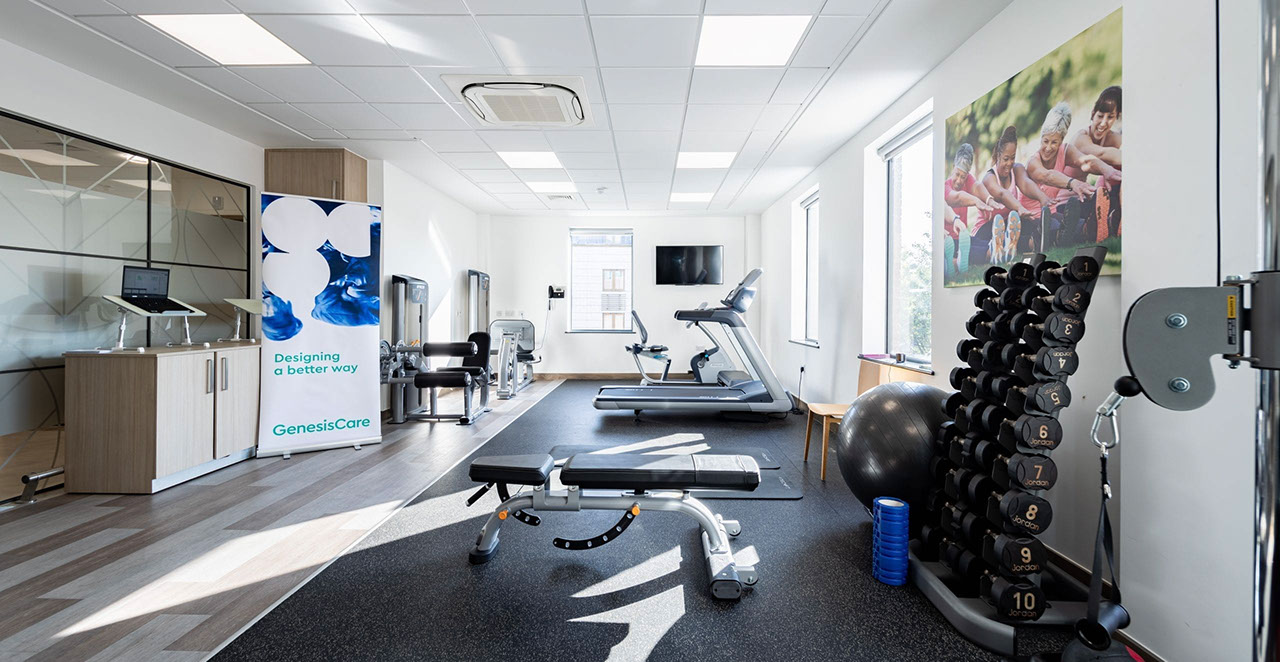- Patients
- Exploring cancer care
- Conditions we treat
- Breast cancer
- Treatment for invasive breast cancer
Treatment overview
Chapter 1
Treatment overview
What is invasive breast cancer?
Early invasive breast cancer is primary breast cancer that has started in the breast and remains in the breast. It might have spread into the local lymph nodes around your breast but not elsewhere in the body.
There are three main areas where breast cancer is found:
• In the milk ducts – this is where most breast cancer starts. This is called invasive ductal breast cancer
• In the lobes (the milk-producing glands) – this is called invasive lobular breast cancer
Your consultant will carefully assess the type of breast cancer you’ve been diagnosed with and plan the most effective treatment, always taking into account your diagnosis and personal preferences
Make an enquiry
We’re recognised by all private medical providers, including Bupa, AXA PPP, Aviva and Vitality. We’re always happy to answer any questions and concerns you may have.
Surgery
Chapter 2
Surgery
Surgery for invasive breast cancer
Surgery is usually the first treatment for early invasive breast cancer.
At GenesisCare we work closely with breast surgeons and partner hospitals so you can have your surgery close by and then complete your treatments at one of our centres. We make this as easy and seamless as possible, so your consultant will look after you throughout.
Your consultant surgeon will explain the options and our expert surgical and oncoplastic (surgeon that specialises in breast reconstruction) teams will find the best one for you, taking into account your wishes and concerns. The main types of surgery are:
- Breast-conserving surgery. If your tumour is quite small, it may be possible to just remove the cancer and a border of normal breast tissue around it. This is to make sure no cancer remains but leaves most of the breast intact.
- Often, the surgeon will also remove some of the lymph nodes under the armpit during the surgery to check that cancer hasn’t spread there.
- If the tumour covers a large part of the breast or if there’s more than one area, it may be necessary to remove the whole breast, together with any lymph nodes. This is known as a mastectomy. Various reconstruction techniques are available, often performed immediately at the time of the mastectomy.
Should you need a mastectomy, we understand that this is life-altering surgery and have emotional support available to help you process the impact of this procedure.
If tumours are large, it is sometimes helpful to ‘shrink’ them first using chemotherapy, targeted antibody drugs or radiotherapy to make them easier to remove with surgery. This is called neoadjuvant or pre-operative treatment.
If you are having your surgery at a partner hospital and have any questions, you can ask the hospital or your GenesisCare team will be happy to guide you.
What treatment do I need after breast cancer surgery?
Most often, treatment for early invasive breast cancer will involve some or all of these:
- Chemotherapy
- Radiotherapy
- Hormone (endocrine) therapy
- Targeted therapy, including monoclonal antibody treatment
- Immunotherapy
- Integrative cancer care
Hormone therapy
Chapter 3
Hormone therapy
Hormone (endocrine) therapy for breast cancer
Three out of every four invasive breast cancers are ER (oestrogen) or PgR (progesterone) positive and you may have been told that your cancer is ‘hormone sensitive’. This means the cancer cells are triggered to grow by oestrogen, a female sex hormone that is made mostly by the ovaries, or by progesterone. If so, you will be offered hormone therapy, also known as endocrine therapy.
Hormone therapy drugs work in different ways. Some block oestrogen from attaching to cancer cells, whilst others reduce the amount of oestrogen your body makes. They can be very effective in preventing breast cancer recurrence or spread.
Your consultant will discuss the treatment options with you and the best time to start. Usually, hormone therapy is started after surgery and continues for several years to help prevent cancer returning. Sometimes it is given to help shrink a tumour before surgery.
Hormone therapies can cause side effects, many of which mimic the symptoms of menopause. If you haven’t yet reached the menopause, our breast care nurses will explain what to expect. We have a lot of support available to help you manage these symptoms and to provide emotional guidance throughout your therapy.
Targeted therapy
Chapter 4
Targeted therapy
Targeted therapy for breast cancer
HER2 positive
Some breast cancer cells have a protein on their surface called human epidermal growth factor receptor 2 (HER2). Some cancer cells make more of this protein than they should and use it to grow more quickly and spread. These are called HER2 positive breast cancers. Approximately one in five invasive breast cancers is HER2 positive.
There are effective treatments available for HER2 positive breast cancers. These are often called targeted therapy, monoclonal antibody or biological therapies. These drugs block cell growth and improve long-term cure rates.
HER2 negative
Cancers that don’t produce more of this protein are called HER2 negative. If you’re HER2 negative, the same targeted therapies won’t be effective.
Triple negative breast cancers
It’s also possible to be both HER2 negative and ER and PgR negative. This is known as triple negative breast cancer (TNBC).
Patients with triple negative breast cancer don’t benefit from targeted or hormone therapies but other treatments, including chemotherapy, are helpful.
No two cancers are the same so your consultant will explain the treatment that’s best for you.
Our understanding of cancer is rapidly advancing, and new safe and more effective drug therapies are being discovered every year.
At GenesisCare our consultants evaluate the safety and effectiveness of all new cancer medicines. We ensure that these latest treatments from around the world are available to our patients, without delay.
Chemotherapy
Chapter 5
Chemotherapy
Chemotherapy for breast cancer
Chemotherapy may be required after surgery, depending on the type of tumour that was removed, to minimise the chances of recurrence. Chemotherapy are anti-cancer drugs that kill off any undetectable microscopic areas where cancer cells have spread. Chemotherapy drugs target rapidly growing cells - like cancer cells. However, this means they also affect other areas where cells are growing and dividing, including the bone marrow, hair follicles and ovaries. That’s why chemotherapy causes temporary side effects.
Our consultants and specialist chemotherapy nurses will work closely with you to help minimise and manage side effects, and there are many ways we can help.
Your consultant will explain which chemotherapy drugs you need, how they will be given and for how long. Not everyone has to have chemotherapy. In some early invasive breast cancer, chemotherapy has little or no benefit. We carefully assess each cancer and can use specialist genomic tests to help decide if chemotherapy is right for you.
If you’re having chemotherapy at one of our GenesisCare medical oncology centres, our chemotherapy nurses will arrange a pre-assessment appointment and show you around our dedicated treatment suites.
If you are having chemotherapy at a partner hospital, their expert teams will support you. We’ll make sure your care at GenesisCare continues to run smoothly alongside it.

Radiotherapy
Chapter 6
Radiotherapy
Breast radiotherapy at GenesisCare
Radiotherapy is the most commonly used treatment after breast cancer surgery. GenesisCare is at the forefront of developments in radiotherapy. We provide the latest-generation systems to deliver highly targeted radiotherapy for effective tumour treatments with fewer side effects.
Radiotherapy usually happens after surgery. Modern radiotherapy is very effective at treating cancer and reducing the risk of cancer recurrence in the breast and lymph nodes.
Not all radiotherapy is the same and there are many differences in the treatment given at GenesisCare that make it world class. Various state-of-the-art radiotherapy techniques are available for all patients.
External beam radiotherapy uses a machine called a linear accelerator to accurately deliver carefully planned beams of radiation to the breast and lymph node areas.
GenesisCare are leading experts in modern techniques called volumetric modulated arc radiotherapy (VMAT) for breast cancer and intensity modulated radiotherapy (IMRT). These advanced therapies vary the radiation across the treatment area, making this very accurate.
During radiotherapy, powerful X-ray beams destroy cancer cells by permanently damaging their DNA so they’re unable to repair themselves. Normal ‘healthy’ cells are also affected by the radiotherapy but, because they are not multiplying as quickly as cancer cells, they have more time to recover between treatments. The modern techniques used at GenesisCare ensure we only target cancer cells and avoid these healthy cells, so we can keep side effects to a minimum.
Your consultant will assess your cancer to decide the best radiotherapy approach for you.
The aim is to treat the breast cancer and prevent it from coming back at a future date, so they’ll also consider other treatments such as long-term hormone therapy, which will also lower the chance of this happening.
The total amount of radiation needed to treat breast cancer is divided into individual treatment sessions called ‘fractions’. Depending on the features of your breast cancer you may be suitable for:
- Partial breast radiotherapy. If you’ve had a small area of cancer removed, it may be possible to treat just that area with radiotherapy, sparing the remainder of the breast from radiation.
- Five-fraction radiotherapy. For many cancers we can give treatment in just five fractions, over one week, instead of the conventional 15 or more sessions over several weeks. This means fewer visits and more manageable side effects.
- If your cancer has spread to the nearby lymph nodes, you may need these areas to be treated too. If so, we can use specialist techniques to target the radiation dose to areas that need it most, such as the chest wall (area beneath the breast) and lymph nodes in the armpit (axilla), lower neck and internal mammary chain (behind the breast bone).
Deep inspiration breath hold
A technique called deep inspiration breath hold (DIBH) is standard at GenesisCare. DIBH ensures that delicate organs such as the heart, lung and liver are kept away from the radiation beam, thereby reducing side effects. There’s a lot of evidence to show this makes radiotherapy much safer, so we always do this on the left side (to protect the heart), and for many right-sided breast cancers.
How soon after breast cancer surgery do you start radiation?
You usually start radiotherapy four to six weeks after breast cancer surgery and it is the most commonly used treatment after surgery. GenesisCare is at the forefront of developments in cancer care. We provide many of the latest technologies to deliver highly targeted radiotherapy for effective tumour treatments with fewer side effects.
Contact us
You can read more detail about our radiotherapy treatments below. If you’d like to find out more about your treatment options, contact us today for advice or to book an appointment.

Clinical trials
Chapter 7
Clinical trials
Current clinical trials for breast cancer
Some of the newest, most promising drugs are offered first through organised clinical trials. Your consultant will discuss any opportunities to take part in a clinical trial with you.
Clinical trials
We’re highly active in clinical research. Treatments that we have today to combat disease and illness wouldn’t be possible without clinical research. Contact us today to find out more about the clinical trials we currently have available. Email: clinicaltrials@genesiscare.co.uk
Integrative cancer care
Chapter 8
Integrative cancer care
What is integrative cancer care?
We’ll invite you to join an integrative cancer care programme alongside your treatment. The aim is to support your emotional and physical wellbeing, with an exercise medicine prescription as well as wellness therapies.
Together, these therapies are called integrative cancer medicine, and there is a lot of evidence to show that they make a difference to the wellbeing and overall outlook of people going through cancer. That’s why we want every patient to benefit. As a patient at GenesisCare, you will be offered this support at no extra cost to you or your insurance provider.
Exercise Medicine
Exercise now plays an important role in cancer treatment. It has been proven in many studies worldwide to reduce the side effects people experience with cancer treatments, build muscle mass, reduce cancer-related fatigue and even help some therapies to work better. Overall, it can help you to speed up your recovery and improve long-term cancer outcomes.
Penny Brohn
We also have a unique partnership with cancer charity, Penny Brohn UK. This ground-breaking charity has an ethos of ‘Living well with cancer’ and will provide therapies to help you to deal with the side effects of treatment, reduce stress, improve energy levels and help you take back control.
You will be offered a personalised complementary programme, involving a holistic needs assessment with your Wellbeing Consultant to reflect on your strengths and where you might need help. The team will develop a series of therapies that aim to alleviate your concerns and improve your quality of life. These could include acupuncture, counselling, mindfulness, meditation and reflexology.
You can access online cancer support from Penny Brohn UK via their website, including a helpline, online Zoom group sessions and 1-1 sessions.

Managing side effects
Chapter 9
Managing side effects
No treatment is without side effects, and everyone will have a different cancer experience. Many of the modern therapies we use also have fewer side effects than more traditional cancer treatments.
However, some side effects still occur. Some are temporary but others may be longer lasting and include:
- Fatigue
- Menopausal symptoms, including hot flushes
- Lymphoedema (arm swelling)
- Bone thinning
We’ll help you manage and alleviate your symptoms where possible, and we can support with diet, exercise, medication, lifestyle advice and wellbeing therapies. You’ll find advice in our individual treatment brochures, our website, and our Penny Brohn UK patient materials. And of course, you can talk to your consultants, specialist nurse team and our exercise medicine specialists who can give a lot of advice.
Completing your treatment
When your treatment is complete, your consultant will explain to you when and how often you need a follow-up appointment. We’ll also support you with useful advice for what to do if you’re concerned and tips about how to stay well and healthy.
Although you will be relieved that your cancer treatment is over, it can still be a worrying time and you may have many mixed emotions. We are here to support you so don’t hesitate to contact your breast care nurse or consultant if you have any concerns or further questions.
You can also contact Penny Brohn UK at any time. You can access a helpline for information and one to one telephone and video appointments with a doctor. Their website also has resources for managing stress and emotions.

Why go private?
Chapter 10
Why go private?
The benefits of choosing private breast cancer care
Each year, many women choose private breast cancer treatment at GenesisCare for:
- The latest techniques and treatments
- Integrative cancer care to support you physically and emotionally through your treatment
- Fast and easy access to treatments with no delay and at times convenient to you
- Leading consultants supported by a team of health professionals specialising in cancer care including surgeons, radiologists, radiographers, clinical nurse specialists and wellbeing therapists
We’re recognised by all private medical insurers. You can get a referral to one of our consultants from your current doctor or you can contact us directly to discuss how to access our services.
Self-pay prices are also available for all diagnostics and treatments on request.
Contact us
We’re recognised by all private medical providers, including Bupa, AXA PPP, Aviva and Vitality. We’re always happy to answer any questions and concerns you may have.
They have a very holistic view of a woman’s wellbeing. It’s not just to get rid of the cancer, it’s to look after you in the long term.
- Cleo
Read next

Doctors
Our doctors
GenesisCare works with many leading and experienced cancer doctors who share our commitment to providing excellent patient care

Centres
Our centres
With 440 centres across the world, we're continuing to diagnose and treat without delay, bringing specialist care closer to our patients in the UK, Spain, Australia and the US.

Cancer care
Exploring cancer care
We are the UK’s leading private provider of advanced radiotherapy and cancer care. We offer fast access to the latest technology and treatments that has been proven to make a difference.

Cancer care
How can we help?
Accessing world-class cancer care is easier than you think. Follow these easy steps to get treatment, tests and scans, or a second opinion at GenesisCare, and find out the different ways of funding your cancer care.

Patient support
Patient stories
We believe patients can be our teachers and trusted advisers, benefiting from their unique experiences.
